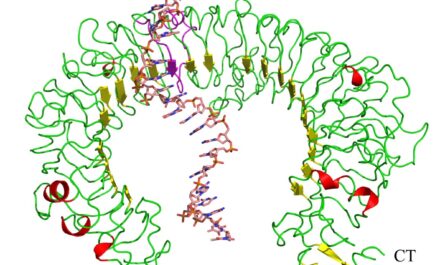The global Protein Engineering Market is estimated to be valued at US$ 1,936.7 Mn in 2021 and is expected to exhibit a CAGR of 15.6% over the forecast period 2023-2030, as highlighted in a new report published by Coherent Market Insights.
Market Overview:
Protein engineering involves the modification and design of proteins to enhance their properties or create new functions. This process enables the production of novel therapeutic proteins with improved efficacy, stability, and specificity. The market is driven by the growing demand for biologics and the need for personalized medicine. Protein engineering techniques are used to produce recombinant proteins for various applications such as drug development, enzyme engineering, and biofuels.
Market Key Trends:
One key trend in the protein engineering market is the development of next-generation protein therapeutics. With advancements in technology and understanding of protein structure-function relationships, researchers are able to design and engineer proteins with enhanced therapeutic properties, such as increased potency, reduced immunogenicity, and improved pharmacokinetics. This trend is driven by the need for more effective and targeted therapies for various diseases, including cancer, autoimmune disorders, and infectious diseases.
Furthermore, the increasing adoption of protein engineering techniques in industrial applications is another key trend in the market. Protein engineering allows for the development of enzymes with improved catalytic activity, stability, and substrate specificity, which are invaluable in various industries such as food and beverage, agriculture, and biofuel production. This trend is driven by the need for sustainable and environmentally friendly solutions in these sectors.
PEST Analysis:
Political: The political environment can have a significant impact on the protein engineering market. Government regulations and policies related to biotechnology, genetic engineering, and intellectual property rights can affect the growth and development of the market. For instance, changes in regulations regarding the approval process for protein-based therapeutics can either facilitate or hinder market growth.
Economic: The protein engineering market is influenced by economic factors such as GDP growth, healthcare expenditure, and investment in research and development. Economic downturns can lead to reduced healthcare budgets and decreased spending on protein engineering technologies. On the other hand, a growing economy and increasing healthcare expenditure can drive market growth.
Social: Social factors play a crucial role in shaping the demand for protein engineering products and services. Factors such as aging population, increased prevalence of chronic diseases, and rising awareness about personalized medicine and targeted therapies are driving the demand for protein engineering solutions. Societal acceptance and ethical considerations related to genetic engineering can also impact market growth.
Technological: Advancements in technology are driving innovation in the protein engineering market. Emerging technologies such as computational biology, machine learning, and high-throughput screening are enhancing the efficiency and effectiveness of protein engineering processes. Additionally, developments in gene editing technologies like CRISPR-Cas9 are opening up new avenues for protein engineering research.
Key Takeaways:
The Global Protein Engineering Market Demand is expected to witness high growth, exhibiting a CAGR of 15.6% over the forecast period from 2023 to 2030. The market is primarily driven by the increasing demand for protein-based therapeutics, advancements in protein engineering technologies, and growing investments in research and development.
In terms of regional analysis, North America is expected to be the fastest-growing and dominating region in the protein engineering market. The presence of a well-established healthcare infrastructure, significant investments in research and development, and high adoption of biologics and personalized medicine are driving market growth in the region.
Key players operating in the protein engineering market include Codexis Inc., Abzena Ltd., Enantis s.r.o, GenScript Biotech Corp., Waters Corporation, PerkinElmer Inc., Bruker Corporation, Agilent Technologies, Bio-Rad Laboratories Inc., and Thermo Fisher Scientific Inc. These key players are actively involved in research and development activities, strategic collaborations, and mergers and acquisitions to strengthen their market position and expand their product portfolios.
*Note:
1. Source: Coherent Market Insights, Public sources, Desk research
2. We have leveraged AI tools to mine information and compile it


